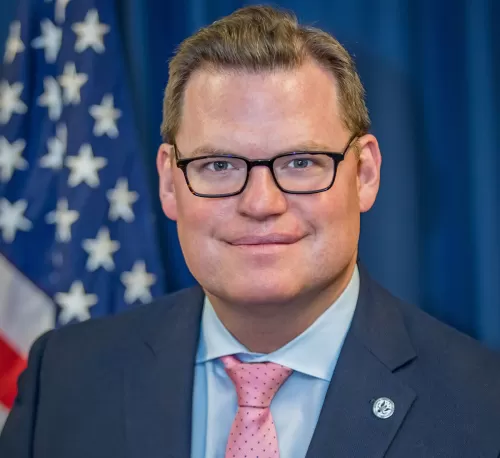NCUA Vice Chairman Kyle S. Hauptman
As Prepared for Delivery on May 20, 2021
Thank you, Mr. Chairman. And thank you Eugene, Myra and Andy for that comprehensive report. The last few months have been a difficult time for predicting anything, much less a volatile, and consequential number like the Share Insurance Fund’s equity ratio.
Today’s update is welcome news as the equity ratio is a bit higher than we might have expected a few months ago. There are also reasons to believe the equity ratio may increase by this time next year if our economy normalizes the way some expect. Had today’s projection been 3 basis points lower, we’d be required to put together a restoration plan. But it’s not required since we’re projecting 1.22 percent. However, I think we all agree that at 1.22 percent, we’re still playing a little close to the highway. Just look at how much more attention is being paid to this Board meeting compared to your run-of-mill update.
But to make one thing clear, everyone I’ve talked to at the NCUA is aware of a few basic things:
- We know that today’s situation is very different than the 2008–2009 financial crisis. We get it. We know the equity ratio has fallen for very different reasons than it did in back then. Last time, it was all about defaults and delinquencies, and this time it’s about rapid share growth.
- We know this is likely temporary. All parties at the NCUA know that the fiscal and monetary stimulus drove up share growth, and that just like a tide coming in and then receding, that money may leave credit unions as quickly as it arrived. Credit union CEOs have told me they consider it “hot money” that members may soon withdraw. After all, the American economy is the undisputed world champion at finding ways to get people to spend money.
- Thus, we’re aware that in the next year or so, the Share Insurance Fund’s equity ratio may well right itself without the NCUA doing anything more. I just want to make that clear.
At the February board meeting, I stated that I did not believe we had enough information to determine if a premium assessment was necessary. I urged caution and while we must be true fiduciaries of the Share Insurance Fund, we need to allow credit unions to continue to focus on real member needs, not our uneasiness about the future. This is still true today.
Credit unions responded to the pandemic in the way we expected them to — prudently and with compassion not only for members, but also for employees. They used their capital as intended — to manage through a rainy day. Capital in a financial cooperative is intended to be built up during good times and used during tough times. And from where I sit, the NCUA responded to the pandemic with a variety of helpful actions. But know that we will remain vigilant about protecting the Share Insurance Fund, especially given how difficult it is to predict where our economy will go next.
I suppose it’s possible that once the stimulus fades and the forbearances end, we’ll find out that the economy was on a bit of a “sugar high” that just delayed problems at credit union lending portfolios. But for now I feel the most prudent action is to stay on top of new developments while remaining cautious about taking money from credit union members and sending it to the NCUA. An itchy trigger finger isn’t a good trait for a regulator nor for a fiduciary of the Share Insurance Fund.
Thank you, Mr. Chairman. This concludes my remarks.



